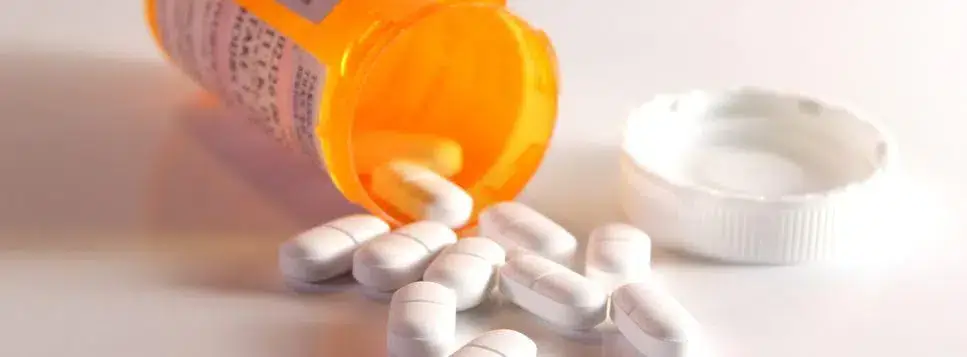The opioid epidemic has had a staggering effect on the people of Colorado. Whether you’re in a large city like Denver, Boulder or Colorado Springs, or a smaller city or town, you have likely felt the effects of the opioid epidemic in some way or another. It’s unfortunate and difficult for policymakers and public officials, as well as everyone in the state.
One of the opioids that’s most commonly abused not just in Colorado but around the nation is Vicodin, which is a schedule II controlled substance. As a schedule II drug, Vicodin is available by prescription, but people are warned it has a high risk of being psychologically and physically addictive.
Vicodin is a combination drug that contains hydrocodone, which is an opioid, as well as acetaminophen. Despite the fact that it’s only intended to be used as a prescription pain medicine, it’s highly abused and it can create a euphoric high in users, particularly at larger doses.
Physical addiction is also called dependence. When you’re dependent on a drug like Vicodin, even if you’re taking it as prescribed, and you stop taking it you can have symptoms of withdrawal.
This Season, Give Yourself the Gift of a Fresh Start.
Whether you are struggling with addiction, mental health or both, our expert team is here to guide you every step of the way. Don’t wait— reach out today to take the first step toward taking control of your life.
Vicodin withdrawal symptoms prove to be a major roadblock to sobriety for a lot of people, but having an understanding of what to expect and how to best detox off Vicodin can help you be more successful.
Vicodin Withdrawal Symptoms
In general, the following are some of the possible Vicodin withdrawal symptoms that may occur when someone is dependent on this prescription opioid pain medicine:
- Changes in appetite
- Drug cravings
- Tremors
- Dilated pupils
- Nausea
- Vomiting
- Sweating
- Diarrhea
- Goosebumps
- Fast breathing
- Cramps and muscle aches
- Insomnia
- Fatigue
- Runny nose
- Fever
There are also psychological symptoms of Vicodin withdrawal that may occur. These symptoms are irritability, mood changes, anxiety, depression, and confusion.

Vicodin Withdrawal Timeline
When someone is dependent on Vicodin, the severity of the symptoms and the Vicodin withdrawal timeline can vary.
Some of the factors that influence the Vicodin withdrawal timeline include:
- How long Vicodin was taken and people who took it for longer will likely have a more challenging withdrawal experience. For people who are going through Vicodin withdrawal after short-term use only, the symptoms are likely to go away more quickly and not be as intense.
- Your tolerance for Vicodin which indicates the dosages you were taking can play a role. If you were taking frequent, high doses, the withdrawal will be tougher.
- Are you psychologically addicted as well as physically dependent? When you have a psychological addiction, it needs to be treated after you have gone through detox.
- If you quit cold turkey, you’re going to have more difficult symptoms than if you quit using Vicodin by following a gradual taper down schedule.
- There are also individual factors to take into consideration such as genetics, biology, age, and metabolism.
In general, a Vicodin withdrawal timeline may look like this:
- Anywhere from 6 to 12 hours after your last dose may be when symptoms of Vicodin withdrawal start to manifest. These early symptoms of Vicodin withdrawal can include muscle aches, anxiety, symptoms of a cold such as watery eyes and a runny nose, and insomnia.
- From days one to three, there will be a peak in symptoms for most people. The symptoms will be most severe at this point and can include diarrhea, abdominal cramps, nausea, and vomiting.
- For most Vicodin users, the symptoms of withdrawal will start to diminish around days 5 to 7.
For some people, especially long-term, heavy Vicodin users there may be something called post-acute withdrawal syndrome. This refers to extended withdrawal symptoms, which are primarily psychological. In this situation Vicodin withdrawal symptoms like anxiety, depression, and cravings may go on for months, but this can be treated with a combination of medication and therapy.
Vicodin Detox in Colorado
Withdrawal and Vicodin detox can be uncomfortable and scary for a lot of people. In fact, the withdrawal symptoms are what can derail people’s attempts at sobriety, which is why it’s important to have the right Vicodin withdrawal help.
The Recovery Village at Palmer Lake is a Colorado Vicodin detox facility and treatment center that’s available as you go through this challenging time.
If you opt to receive treatment at our accredited detox center in Palmer Lake, CO, our medical staff will monitor you to ensure there are no complications, and also provide you with the necessary medicines to ease your symptoms and help you successfully move into addiction treatment.
Once you’ve finished your detox from Vicodin, then you can move into an inpatient or outpatient rehab program.


Take The First Step Toward Recovery.
Our team of recovery experts are here to help you begin your journey toward a healthier, substance-free life in recovery
[contact-form-7 id=”556″ title=”Take The First Step Toward Recovery Form”]







